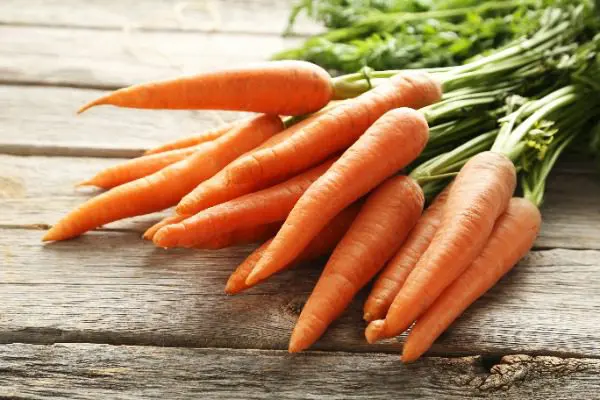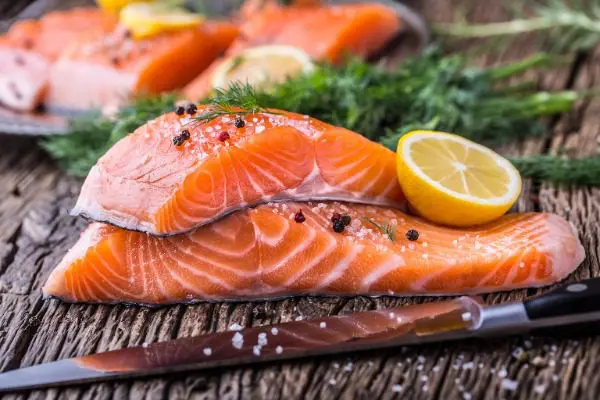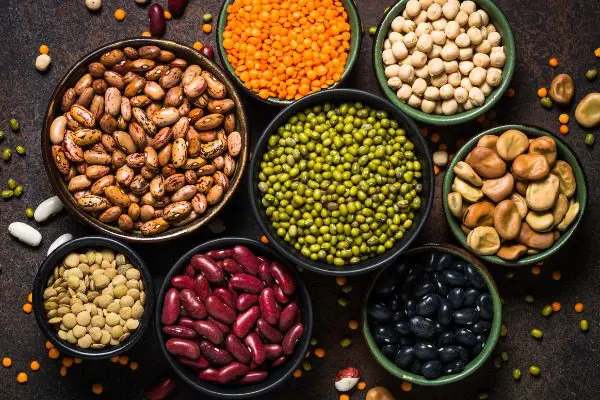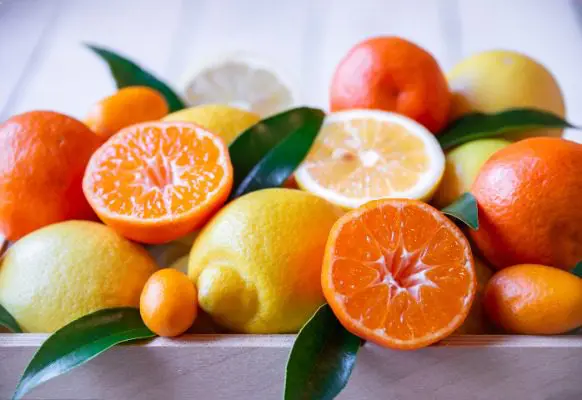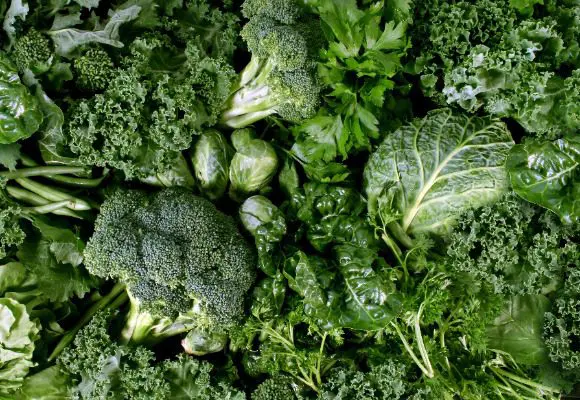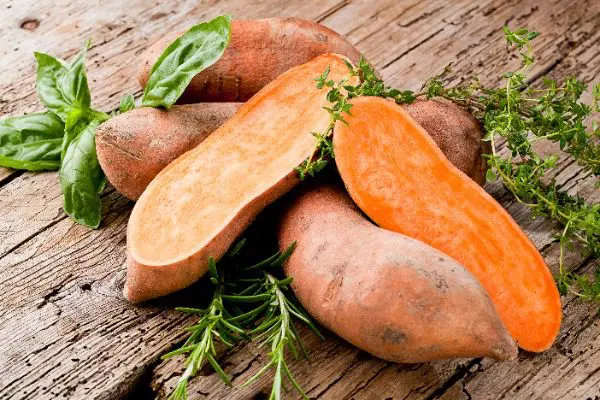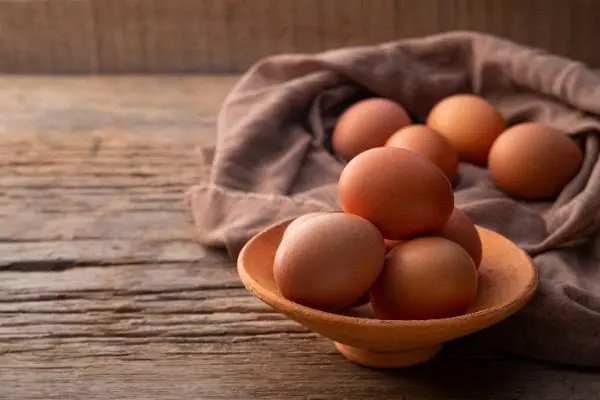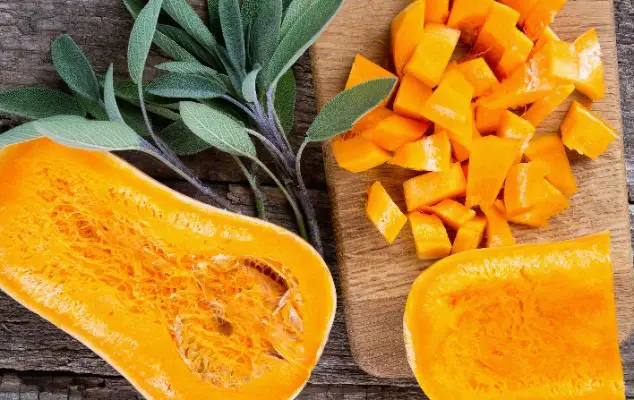You’ve likely heard the expression an apple a day keeps the doctor away, and it’s partly true. Whether you have vision problems or not, eating certain foods can benefit your eye health. It’s an easy way to be proactive about your vision, and you might even discover that the foods you already love help. Try adding these foods to your diet to prolong and fortify healthy eyes. Here are 10 great foods for eye health.
1. Carrots
Carrots are a great source of beta-carotene, which gives carrots their orange color and helps your body produce vitamin A. Vitamin A plays a significant role in your eye health, especially night vision. To help your retina absorb light, especially in low light settings, it needs the help of a protein called rhodopsin, and a vital component of that protein is vitamin A. Carrots are easy to add to your diet – they can be cooked, and eaten whole after being shaved, or added to a smoothie. No matter how you choose to eat carrots, they are some of the best foods for healthy eyes.
2. Fish & Fish Oil
There is plenty of fish in the sea, and most of them contain vital components to your vision. Fish such as salmon, tuna, sardines, and plenty more contain omega-3 fatty acids. Consuming omega-3 fatty acids helps your retina function properly and may help protect your eyes from age-related macular degeneration (AMD) and glaucoma. If you or a family member aren’t big on eating fish, perhaps fish oil, also rich in omega-3 fatty acids, is a better option.
3. Nuts & Seeds
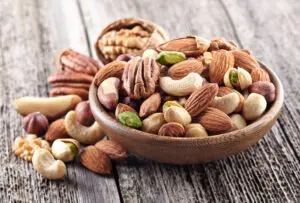
Although these are separate food groups, nuts, and seeds are great sources of vitamin E. Simply consuming an ounce of sunflower seeds or almonds gives you half the daily recommended amount of vitamin E for adults. Studies have shown that vitamin E may play a role in slowing down AMD’s effects and may help prevent cataracts. Additionally, certain nuts and seeds contain omega-3 fatty acids as well. Chia seeds, flax seeds, walnuts, and almonds are all great foods for eye health.
4. Legumes & Beans
Some foods that are legumes are often mistaken as seeds or nuts. Legumes and beans such as kidney beans, chickpeas, lentils, and black beans are great bioflavonoids and zinc sources. These compounds and nutrients help protect your retina and lower your risk of developing macular degeneration and cataracts. Zinc can also help your eyes by protecting them from damaging light.
5. Citrus Fruits
One commonly known fact about citrus fruits is that they contain a lot of vitamin C. This vitamin is good for your blood vessels, and some studies suggest that it can help lower your risk of developing cataracts. While most people only think of oranges when it comes to vitamin C, bell peppers contain the most vitamin C per calorie. Additionally, bell peppers have vitamins E and A. An important note about vitamin C is that it’ll break down from being heated up or cooked. Try your best to eat foods that are rich in vitamin C and raw.
6. Leafy-Green Vegetables
Now for everyone’s favorite food group: leafy green vegetables! While most people don’t get enough of these vegetables, they contain nutrients like lutein and zeaxanthin. Studies have shown that these nutrients can help reduce the risk of chronic eye diseases, including AMD and cataracts. Additionally, leafy greens such as kale, spinach, and collard greens are rich in eye-friendly vitamins C and E. Add these foods to your diet as a side dish or hide them in a fruit smoothie.
7. Sweet Potatoes
Similar to carrots, sweet potatoes contain beta-carotene, which helps your body’s development of vitamin A. As stated earlier, vitamin A can help you see better in low-light settings, such as nighttime. Sweet potatoes are another easy food to add to your diet. Eat sweet potatoes as a side dish or slice them up and fry them to make sweet potato fries. Simply eating one sweet potato can supply you with more than half of your daily recommended vitamin C, with a bit of vitamin E as well.
8. Eggs
Eggs are a great source of zinc, which helps your body utilize nutrients such as lutein and zeaxanthin. These nutrients help protect your eyes from harmful light rays and reduce your risk of age-related vision loss. In addition to zinc, lutein, and zeaxanthin, eggs also contain vitamins C and E, making them incredible foods for eye health. Your options for eating eggs are only limited to your abilities as a cook. Scramble them up, boil them, or make a delicious omelet full of other ingredients on this list.
9. Lean Meats
Lean meats such as beef, poultry, and pork are rich in zinc, helping delay AMD and other age-related vision loss conditions. Consuming zinc-rich lean meats can help your body transport vitamin A to your eyes, specifically your retina. The eyes themselves contain high zinc levels, so getting enough vitamin A can help protect them.
10. Squash
You’ll get different eye health benefits depending on the type of squash you eat. Overall, eating any kind of squash will give your eyes much-needed nutrients, including lutein and zeaxanthin. If you’re eating summer squash, you’ll have the added benefits of vitamin C and zinc. On the other hand, eating winter squash gives you vitamins A and C and omega-3 fatty acids. You can create plenty of tasty dishes with squash, such as pasta for spaghetti, squash fries, or squash “potato skins,” to name a few.
When to See a Doctor About Your Eye Health
While eating foods that improve your vision is beneficial to eye health, it’s not an alternative to treating vision issues. LASIK eye surgery is able to reshape the cornea to improve your eyesight in areas where food cannot. If you are noticing any problems with your vision, schedule a consultation with your doctor. If you need a LASIK procedure to correct your vision, Toledo LASIK is the practice for you!


